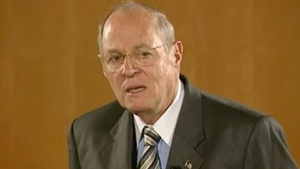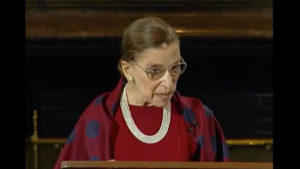This middle school lesson plan is designed to accompany the film “Juneteenth” and focuses on the themes of freedom and citizenship. Students will explore the events that led up to the issuance of General Order #3, while considering the relationship between freedom and citizenship, and why Juneteenth is significant for all Americans.
Juneteenth: The Work and Promise of Freedom
This middle school lesson plan is designed to accompany the film “Juneteenth” and focuses on the themes of freedom – personal, economic, social, and political freedom – and self-determination. Students will examine how African American people worked to win freedom, how some Americans tried to take that freedom away, and how citizens can protect freedom today. Students will also identify the promise of Juneteenth and consider if that promise has been achieved.
Battle for Emancipation and Full Citizenship: A Journey from Dred Scott to the 15th Amendment
This high school lesson plan is designed to accompany the film “Juneteenth” and encourages students to consider the connections between historical events before, during and after the Civil War that charted the course to citizenship for enslaved people in the United States. Students will also examine societal reactions to the emancipation of enslaved people and how the resulting conflicts necessitated the need for the three Reconstruction Amendments.
Equal Justice Under Law: Yick Wo v. Hopkins
This lesson teaches about the cause-and-effect relationships between historical events and the development of constitutional principles that protect the rights of all people in America today.
A Conversation on the Constitution with Justice Anthony Kennedy: The Importance of the Yick Wo Case
Justice Kennedy discusses the ruling in Yick Wo v. Hopkins in which the U.S. Supreme Court decided that the unequal application of a law violated the 14th Amendment.

A Conversation on the Constitution with Justice Ruth Bader Ginsburg: The Fourteenth Amendment
Incorporating three integral constitutional tenets – due process, equal protection, and privileges and immunities – the 14th Amendment was originally intended to secure rights for former slaves, but over the years, it has been expanded to protect all people. Justice Ginsburg discusses with students its importance.

Yick Wo and the Equal Protection Clause
This documentary examines the case Yick Wo v. Hopkins (1886) in which the Supreme Court held that noncitizens have due process rights under the 14th Amendment’s equal protection clause. The Court said that unequal application of a law violated the rights of a Chinese immigrant.

13th Amendment
The 13th Amendment, one of the Reconstruction era amendments, abolished slavery.
